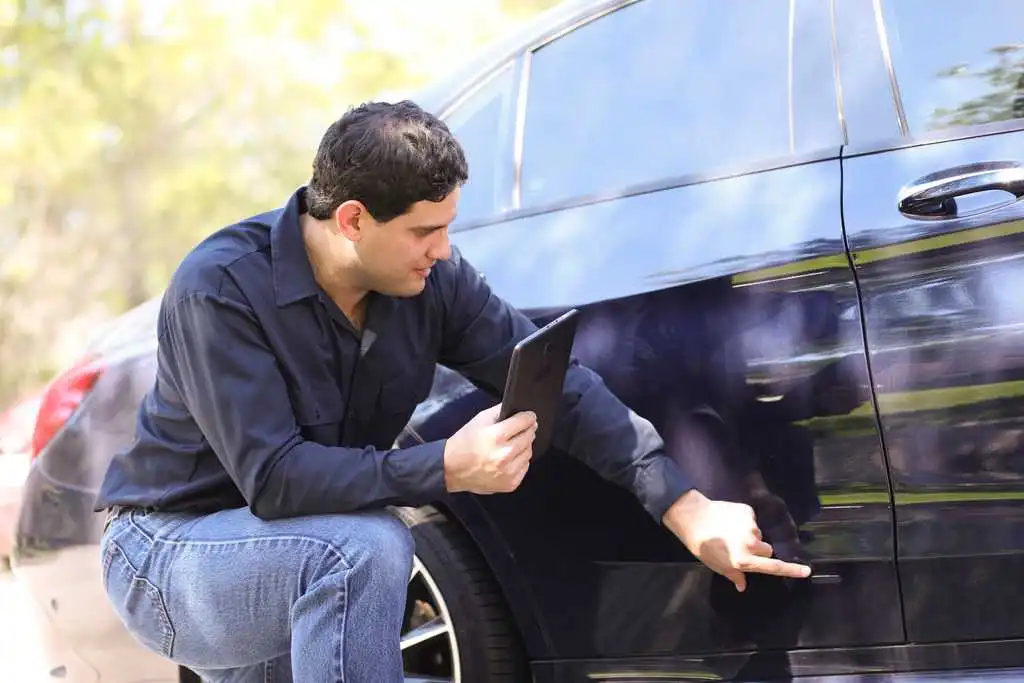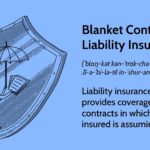Can you get full coverage insurance with a rebuilt title? This question often perplexes vehicle owners who have purchased or are considering buying a car with a rebuilt title.
While obtaining insurance for these vehicles is possible, the process can be more challenging than for cars with clean titles.

Many insurers are hesitant to offer comprehensive Coverage for rebuilt title vehicles due to the increased risk they may pose. Some companies do provide full coverage options, albeit often at higher premiums. The key is to shop around and be transparent about the vehicle’s history.
In this article, we’ll explore the ins and outs of iensuringrebuilt title vehicles, discuss the factors that affect coverage options, and provide tips for finding the right policy to protect your investment.
Understanding Rebuilt Titles
Before we move on to the insurance aspects, let’s first clarify what a rebuilt title means and how it differs from other vehicle titles.
What is a Rebuilt Title?
A rebuilt title is given to a vehicle previously declared a total loss by an insurance company but has since been repaired and restored to roadworthy condition. This process typically involves several steps:
- The vehicle suffers significant damage (often from an accident, flood, or other severe incidents).
- An insurance company declares it a total loss, meaning the vehicle’s repair cost exceeds a certain percentage of its value.
- The vehicle is given a salvage title, indicating it’s not roadworthy in its current state.
- Someone purchases the salvage vehicle and repairs it.
- The vehicle passes a state inspection to ensure it meets safety standards.
- The state issues a rebuilt title, allowing the car to be legally driven on public roads.
Rebuilt vs. Clean Titles
It’s essential to understand the difference between a rebuilt title and a clean title:
| Rebuilt Title | Clean Title |
|---|---|
| The vehicle has never been declared a total loss | May have had routine maintenance or minor accidents |
| Underwent significant repairs | It may have lower resale value |
| Passed state inspection after repairs | No special inspection required |
| Generally, a higher resale value | It can be more challenging to insure |
| Can be more challenging to insure | Easier to insure |
Now that we’ve covered the basics of rebuilt titles let’s explore how they impact your insurance options.
Full Coverage Insurance: What It Means
Before addressing whether you can get full coverage insurance for a rebuilt title vehicle, let’s clarify what full Coverage entails.
Components of Full Coverage Insurance
Full coverage insurance typically includes three main components:
- Liability Coverage: This protects you if you’re at fault in an accident and cause damage to other people or their property.
- Collision Coverage: This covers damage to your vehicle if you’re involved in an accident with another car or object.
- Comprehensive Coverage: This protects your vehicle from non-collision-related incidents, such as theft, vandalism, or natural disasters.
It’s worth noting that “full coverage” isn’t standardized in the insurance industry. The exact Coverage can vary between insurance providers, so it’s always important to review the specific details of any policy you’re considering.
The Challenge of Insuring Rebuilt Title Vehicles
Let’s address the central question: Can you get full coverage insurance with a rebuilt title? The short answer is yes, it is possible.
However, it can be more challenging than insuring a vehicle with a clean title. Here’s why:
Why Insurance Companies are Hesitant
There are several reasons why some insurance companies will hesitate to provide full Coverage for a vehicle with a rebuilt title:
- Unknown Extent of Previous Damage: Insurance companies may not have complete information about the extent of the previous damage or the quality of repairs.
- Potential Hidden Issues: Even if a vehicle passes inspection, underlying problems cannot be detected.
- Difficulty in Assessing Value: Rebuilt title vehicles can be challenging to value accurately, making it harder for insurers to determine appropriate coverage limits.
- Higher Risk Perception: Some insurers view rebuilt title vehicles as higher risk, assuming they’re more likely to have mechanical or safety issues.
Common Insurance Company Policies
Given these concerns, insurance companies typically take one of the following approaches to rebuilt title vehicles:
- Offer Liability Coverage Only: Some insurers will only provide liability coverage, which is typically required by law, but they won’t offer collision or comprehensive Coverage.
- Provide Limited Coverage: Some may offer full Coverage but with certain limitations or exclusions specific to rebuilt title vehicles.
- Offer Full Coverage at Higher Rates: Some insurers will provide full Coverage but at significantly higher premiums to offset the perceived increased risk.
- Refuse Coverage Entirely: Some insurance companies have policies against insuring rebuilt title vehicles.
Steps to Obtain Full Coverage for a Rebuilt Title Vehicle
While it may be more challenging, it’s not impossible to get full coverage insurance for a vehicle with a rebuilt title.
Here are some steps you can take to improve your chances:
1. Shop Around
Different insurance companies have different policies regarding rebuilt title vehicles. Don’t give up if the first few insurers you contact aren’t willing to provide full Coverage. Keep searching and comparing quotes from various providers.
2. Provide Detailed Documentation
The more information you can provide about the vehicle’s history and current condition, the better. Gather and be prepared to share:
- Detailed repair records
- Before and after photos of the vehicle
- Results of the state inspection
- Any additional inspections or certifications you’ve obtained
3. Get an Independent Inspection
Consider having the vehicle inspected by an independent mechanic or automotive expert. Their report can provide additional assurance to insurance companies about the vehicle’s condition and safety.
4. Consider Specialized Insurers
Some insurance companies specialize in or are more open to insuring rebuilt title vehicles. Research and contact these specialized providers.
5. Be Prepared to Pay More
Even if you find an insurer willing to offer full Coverage, be prepared for higher premiums. The increased perceived risk often translates to higher costs for the policyholder.
Pros and Cons of Insuring a Rebuilt Title Vehicle
Before deciding whether to pursue full coverage insurance for a rebuilt title vehicle, it’s worth considering the pros and cons:
Pros:
- Lower Initial Cost: Vehicles with rebuilt titles are often significantly less expensive to purchase than those with clean titles.
- Potential for a Great Deal: If the vehicle was well-repaired, you might get a reliable car at a fraction of the cost of a similar vehicle with a clean title.
- Complete Protection: If you can secure full Coverage, you’ll have comprehensive protection for your investment.
Cons:
- Higher Insurance Costs: You’ll likely pay more for insurance, potentially offsetting some savings from the lower purchase price.
- Limited Insurance Options: You may have fewer choices regarding insurance providers and coverage options.
- Potential for Hidden Issues: Despite passing inspections, there’s always a risk of underlying problems not being detected during repairs.
- Lower Resale Value: Vehicles with rebuilt titles typically have lower resale values, which can impact your long-term financial outlook.
Alternatives to Consider
If you’re finding it too challenging or expensive to insure a rebuilt title vehicle, consider these alternatives:
1. Purchase a Vehicle with a Clean Title
While it may cost more upfront, a vehicle with a clean title will typically be more accessible and less expensive to insure.
2. Look for “Branded Title” Vehicles
Some vehicles have branded titles that indicate minor issues (like hail damage) but weren’t declared total losses. These can be easier to insure than rebuilt title vehicles.
3. Consider Older Vehicles
Older vehicles with clean titles might offer a good balance between affordable purchase prices and reasonable insurance costs.
Conclusion
While getting full coverage insurance for a vehicle with a rebuilt title is possible, it can be a challenging process. Some insurance companies will hesitate to provide full Coverage for the vehicle, citing concerns about unknown damage, potential hidden issues, and difficulties in accurately assessing the vehicle’s value.
However, by being persistent, providing detailed documentation, and potentially working with specialized insurers, you can improve your chances of securing the Coverage you need. Always weigh the potential savings of purchasing a rebuilt title vehicle against the higher insurance costs and other potential drawbacks.
Remember, every situation is unique. What works for one person may not be the best choice for another. Always do your research, consider your options carefully, and make the decision that best fits your individual needs and circumstances.
Frequently Asked Questions
Can I get full coverage insurance on any rebuilt title vehicle?
While it’s possible to get full coverage on many rebuilt title vehicles, it depends on various factors, including the specific vehicle, its history, current condition, and the policies of different insurance companies. Some vehicles may be easier to insure than others.
How much more expensive is insurance for a rebuilt title vehicle?
The cost can vary widely depending on the insurer and the specific vehicle. Some reports suggest that insurance for rebuilt title vehicles can be 20-40% more expensive than for similar vehicles with clean titles, but this can vary significantly.
Do all states allow rebuilt title vehicles on the road?
Most states allow rebuilt title vehicles on the road, but the process for obtaining a rebuilt title and the associated requirements can vary by state. Always check your local laws and regulations.
Can I switch from liability-only to full Coverage on my rebuilt title vehicle later?
Switching from liability-only to full Coverage later may be possible, but it could be more challenging. If you think you might want full Coverage in the future, it’s often easier to secure it when you first insure the vehicle.







